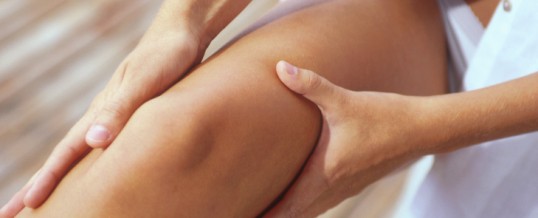The basic medical description of varicose veins is that they are a result of bulging, twisted veins that form just below the surface of the skin. Often found on the calf area of the leg, these protrusions can likewise be found in other areas of the body. Veins only carry blood one way; the valves inside them are responsible for preventing any backflow. However, due to the weakening of the veins’ walls, the blood vessels, including the flaps of the valves, expand. The blood flows back and forms a pool that causes the veins to further expand and become twisted. From there, varicose veins are formed.
What are the common causes of varicose veins?
This medical condition happens as a result of numerous factors. For one, females are likely to have them than men. Aging could also become a factor, as the veins naturally weaken because of advancing age. Pregnancy and being overweight or obese may heighten the likelihood of varicose veins, due to the fact that the extra weight that such individuals carry causes pressure on the legs’ veins. Work that involves long hours of sitting or standing, as well as work that involves a worker to follow a dress code characterized with high heels and tight clothing may also increase the risk of having varicose veins.
What are common treatments for varicose veins?
Fortunately, those who are affected by this medical condition can take advantage of several treatment options. The type of treatment would depend on how severe the condition is and how it further complicates the health of the individuals. Obviously, if there is swelling involved, skin changes, ulcers, blood clots, and bacterial or fungal infections, varicose vein procedures may be administered to either close them or remove them completely from the affected area.
Most of the medical procedures are surgical in nature. Basically, varicose vein surgery could be “non-invasive,” “less invasive,” or otherwise. For the non-invasive ones or those that don’t require the individual to go under the knife, there are such procedures as sclerotherapy, microsclerotherapy, laser treatment, and radiofrequency treatment.
- On the first two procedures, a needle is inserted to the varicose vein, injecting a chemical of a certain volume in an effort to close the vein off.
- In laser surgery, the treatment involves light energy being applied on top of the skin where the bulging veins are until they disappear.
- The use of radio frequency waves instead of light energy may likewise help close down the varicose veins.
Then there are the typical surgical procedures conducted by vein specialist that involve making incisions on the affected area where varicose veins appear. Of course, there are the less invasive ones, where the risks are lower than a normal surgery. Local anesthesia is used instead of general anesthesia, and the recovery times are usually shorter. These include the following:
- Endovenous laser treatment. This is different from the non-invasive type of laser treatment. Here, a small incision is made on the affected part and then inserting a thin tube into the vein. The end of that tube has laser, which then exerts light energy to close down the varicose vein.
- Stab avulsion treatment. Also known as phlebectomy, it involves making tiny incisions on the affected area. But instead of closing the vein down, it is extracted from the incision.
A minor varicose vein surgery, meanwhile, is administered by vein specialist if there is bleeding, ulcers, or any complications surrounding the damaged veins. Likewise known as vein ligation and stripping, the procedure makes use of regional or general anesthetic being removed completely while the patient is under general anesthesia. A small cut is made just below the affected area, and then an instrument clamps down the vein until it is removed from the body. Other affected veins are tied off or ligated.
Undergoing a procedure, whether it is a full minor varicose vein surgery or non- or less invasive treatments, is important for those who want to get rid of the bulging veins on their legs or any part of the body. These are done for cosmetic reasons or to prevent complications from happening.



